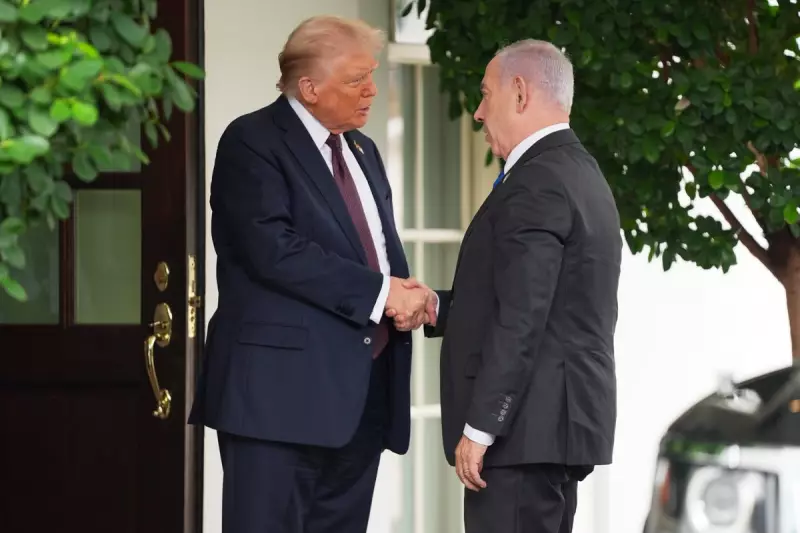
In a dramatic political development that has sent shockwaves through international diplomatic circles, former US President Donald Trump has publicly endorsed a peace plan for Gaza that critics argue serves more as a political weapon than a genuine roadmap to resolution.
Political Firestorm Erupts Over Trump's Proposal
The controversial proposal emerged amid Israel's ongoing military operations in Gaza, with Trump claiming credit for what he described as a "great" and "very positive" peace initiative. However, the plan has immediately drawn fierce criticism from multiple fronts, including the Biden administration and Democratic leaders.
Netanyahu's Calculated Move?
Political analysts suggest Israeli Prime Minister Benjamin Netanyahu may be strategically leveraging Trump's endorsement to strengthen his domestic political position. "This appears to be a carefully orchestrated political manoeuvre," noted Middle East expert Dr. Sarah Jenkins. "Netanyahu understands the value of Trump's support among certain voter bases, particularly as he faces mounting pressure over his handling of the conflict."
Biden Administration's Strong Response
The current White House administration has responded with notable frustration, with officials privately expressing concerns about the timing and motivation behind the proposal. A senior administration official, speaking on condition of anonymity, revealed that there are "serious questions about whether this is a genuine peace effort or merely political theatre designed to influence upcoming elections."
Democratic Outrage Grows
Prominent Democratic figures have been particularly vocal in their condemnation. Senate Majority Leader Chuck Schumer described the situation as "deeply troubling," while House Minority Leader Hakeem Jeffries warned against "playing politics with human lives." The criticism centres on concerns that the proposal could undermine ongoing diplomatic efforts and complicate humanitarian operations in the region.
International Reaction and Implications
The international community watches with growing apprehension as the political drama unfolds. European leaders have expressed cautious concern, while Arab nations remain sceptical about the proposal's viability. The timing is particularly sensitive given the escalating humanitarian crisis in Gaza and increasing international pressure for a ceasefire.
As the 2024 presidential election approaches, this development highlights how international conflicts increasingly become entangled in domestic political battles, raising questions about the future of US foreign policy in the Middle East regardless of which party occupies the White House.





